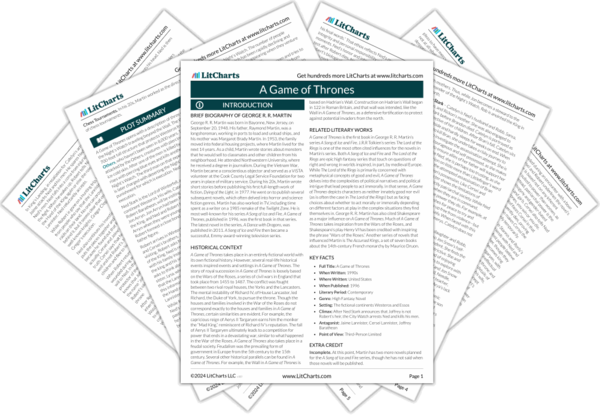AI ToolsNew
Tools to make learning and teaching easier
|
Previous
Chapter 18: Catelyn
|
A Game of Thrones: Chapter 19: Jon Summary & Analysis |
Next
Chapter 20: Eddard
|


Upgrade to unlock the analysis and theme tracking for all of A Game of ThronesA Game of Thrones!
Get LitCharts A+